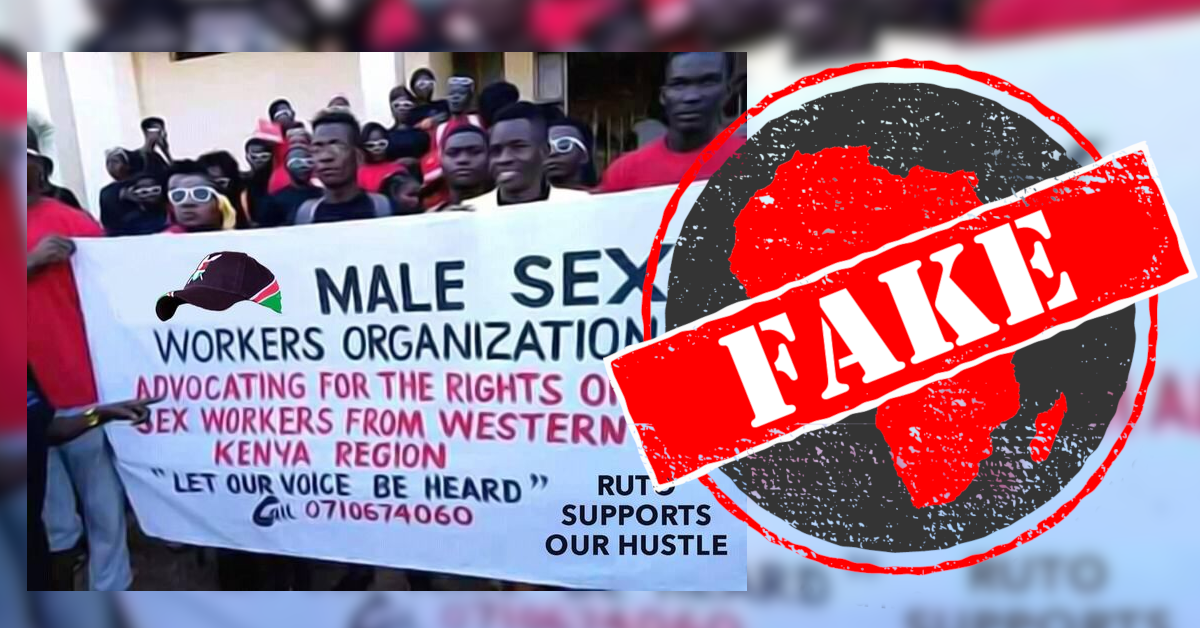A mixture of spring onion and fried palm kernel oil is a “treatment for prostate cancer without surgery” that is “tested, effective and trusted”, claims a message posted on Facebook in Nigeria.
It gives a recipe for a paste made from the two ingredients. “Take two table spoonfulls morning and night. Within two weeks the symptoms will disappear completely and permanently,” it reads.
“No surgery, no expensive drugs. It is one of God's many free gifts to humans. Freely did I get this info and freely I have.”
Will this paste cure prostate cancer “completely and permanently”?

The prostate is a small gland at the base of the bladder in males. The symptoms of prostate cancer include trouble urinating, decreased force in the urine stream, blood in the semen, discomfort in the pelvic area, bone pain and erectile dysfunction.
The cancer is more common in older men, but can be cured with surgery or radiation therapy if detected early enough.
“If a man is having a health challenge, he should visit a urologist,” Paul Ekwere, a professor of urology at the University of Calabar in southern Nigeria, told Africa Check when asked about the remedy. “The expert would evaluate them and lead them through whatever treatment is necessary.”
Sulyman Kuranga, a professor of urology at the University of Ilorin in western Nigeria, described the claim as “just a mere statement with no scientific backing to prove the mixture works”.
“People combine all sorts” of ingredients to create remedies, he said. “These claims have not been scientifically proven. They should be ignored.”– Motunrayo Joel
It gives a recipe for a paste made from the two ingredients. “Take two table spoonfulls morning and night. Within two weeks the symptoms will disappear completely and permanently,” it reads.
“No surgery, no expensive drugs. It is one of God's many free gifts to humans. Freely did I get this info and freely I have.”
Will this paste cure prostate cancer “completely and permanently”?

Visit urologist if you think you have prostate cancer
The prostate is a small gland at the base of the bladder in males. The symptoms of prostate cancer include trouble urinating, decreased force in the urine stream, blood in the semen, discomfort in the pelvic area, bone pain and erectile dysfunction.
The cancer is more common in older men, but can be cured with surgery or radiation therapy if detected early enough.
“If a man is having a health challenge, he should visit a urologist,” Paul Ekwere, a professor of urology at the University of Calabar in southern Nigeria, told Africa Check when asked about the remedy. “The expert would evaluate them and lead them through whatever treatment is necessary.”
Sulyman Kuranga, a professor of urology at the University of Ilorin in western Nigeria, described the claim as “just a mere statement with no scientific backing to prove the mixture works”.
“People combine all sorts” of ingredients to create remedies, he said. “These claims have not been scientifically proven. They should be ignored.”– Motunrayo Joel
Republish our content for free
For publishers: what to do if your post is rated false
A fact-checker has rated your Facebook or Instagram post as “false”, “altered”, “partly false” or “missing context”. This could have serious consequences. What do you do?
Click on our guide for the steps you should follow.
Publishers guideAfrica Check teams up with Facebook
Africa Check is a partner in Meta's third-party fact-checking programme to help stop the spread of false information on social media.
The content we rate as “false” will be downgraded on Facebook and Instagram. This means fewer people will see it.
You can also help identify false information on Facebook. This guide explains how.





Add new comment